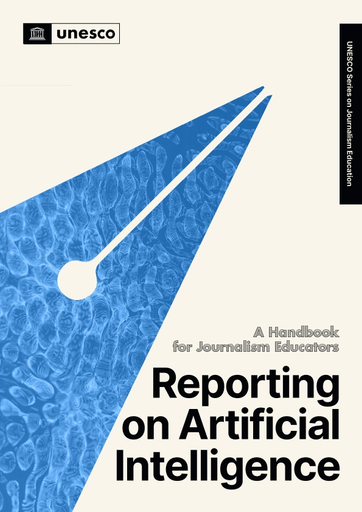The rise and control of artificial intelligence (AI) is impacting society as a whole. It follows that AI coverage must inform audiences about the implication of the technology itself, beyond journalism. For instance, reporting on the power dynamics in the changing relationship between companies, authorities, citizens and computer chips, and between data and algorithms. While many AI deployments serve public interest, journalists also need insight and expertise to alert about aspects like exclusions, unequal benefits, and violations of human rights.
The aim of the book Reporting on Artificial Intelligence: A Handbook for Journalism Educators (ed. by Maarit Jaakkola), published as part of UNESCO’s journalism education series in collaboration with the World Journalism Education Council (WJEC), is to inspire and empower so that journalism educators can help both journalism students and working journalists do justice to one of the major issues of our times.
The handbook covers:
- Understanding machine intelligence and identifying different types of AI
- Exploring AI’s potential, as well as its strengths and weaknesses
- Imagining diverse futures with AI by recognising pervasive popular narratives that inform public consciousness
- Understanding journalism’s role in mediating and shaping AI discourse
- Finding ways of reporting about AI in a nuanced, realistic and accountable manner
- Making connections to existing genres of journalism, ranging from general news reporting to data journalism
The book is available as open access on UNESCO’s site: https://unesdoc.unesco.org/ark:/48223/pf0000384551.


